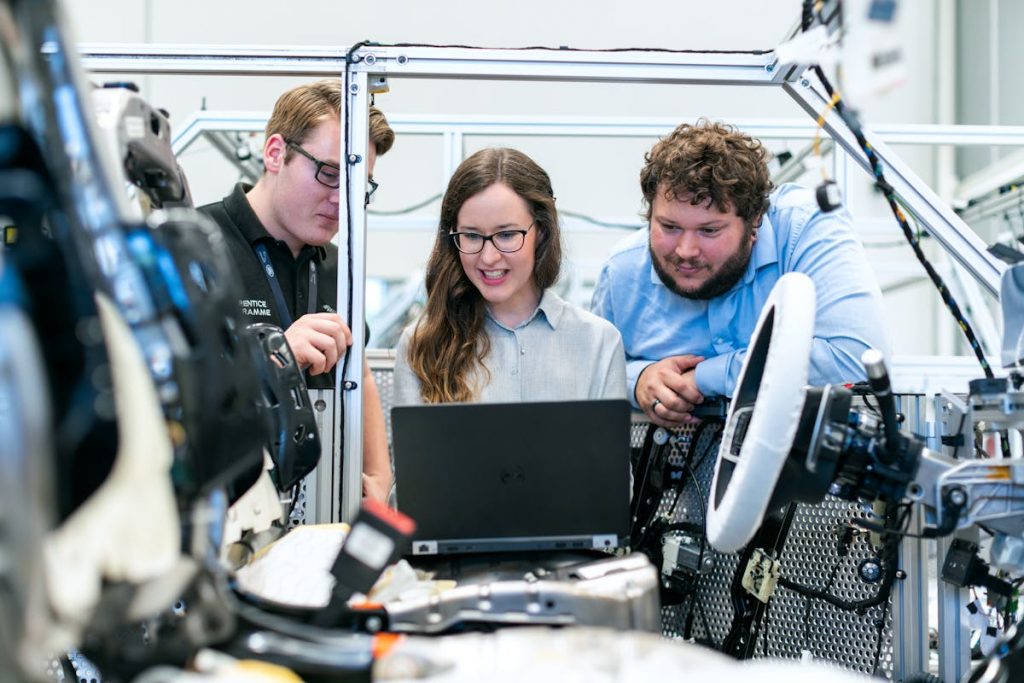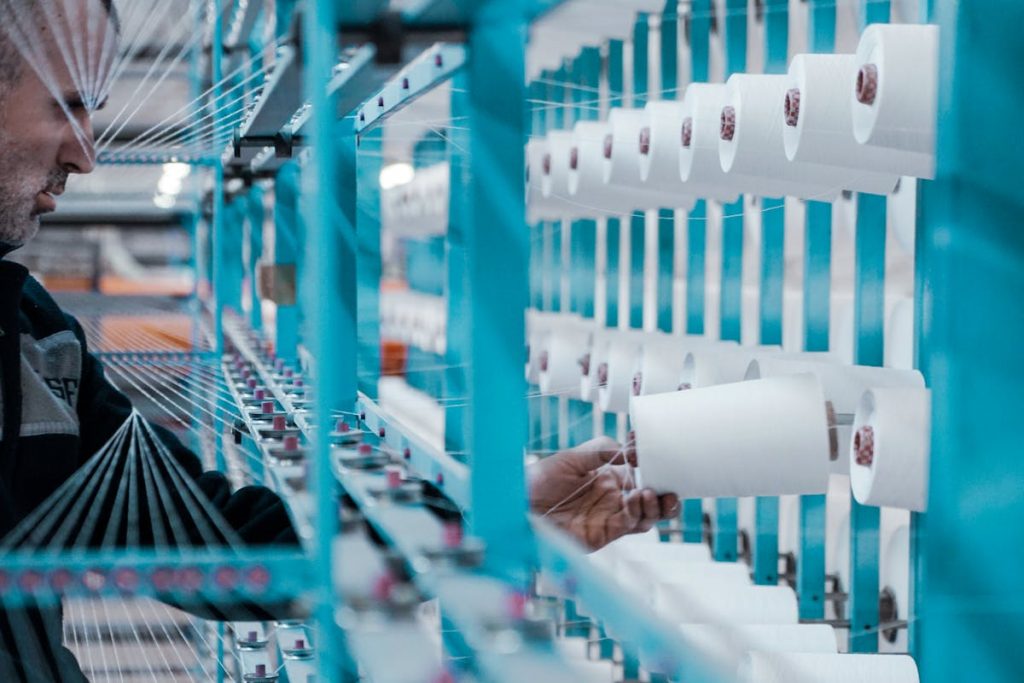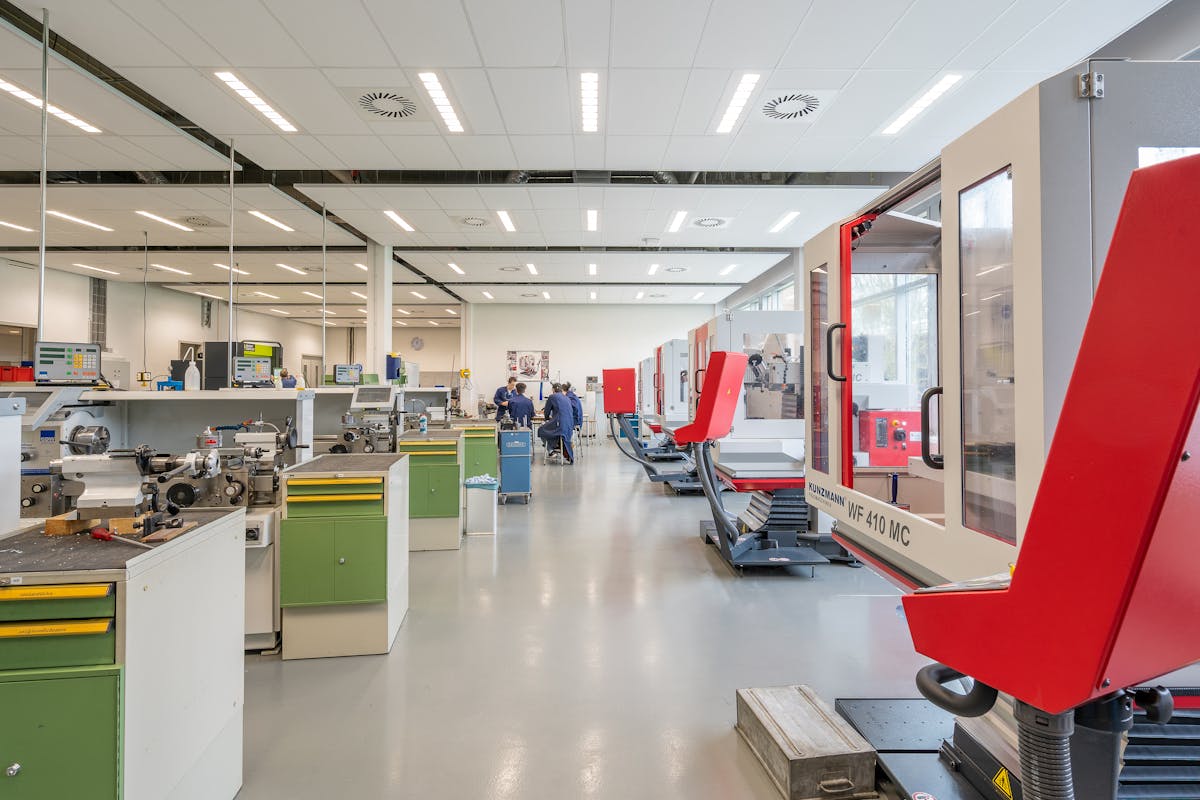
- Industry 4.0 revolutionizes manufacturing with digital technologies like robotics, 3D printing, and sustainable practices.
- Data literacy is crucial for optimizing and integrating operations into strategic business planning.
- Automation complements human skills by enhancing precision and efficiency in the workplace.
- Sustainable manufacturing focuses on renewable energy, recycling, and product lifecycle design for eco-friendly careers.
- Other undergraduate courses can be entry courses in manufacturing.
The manufacturing industry, often overlooked compared to sectors like tech or finance, is a powerhouse driving progress. Manufacturing offers abundant opportunities and challenges, from producing resources and goods to innovating materials and processes. This path is a good choice considering its constant demand from the public. Here are insights and tips to prepare you for the future.
Understanding the Manufacturing Industry
The Root and the Rise of Manufacturing
Manufacturing has been the backbone of economic growth, employment, and trade for centuries. In today’s global landscape, countries and companies that excel in manufacturing can hold a competitive edge by harnessing digital innovation, lean production systems, and leveraging data-driven insights.
The Broad Spectrum of Opportunities
Manufacturing encompasses more than just the factory floor. It’s a complex ecosystem includes engineers, designers, researchers, logistics experts, and many other professionals. Opportunities range from entry-level positions to high-skilled roles that require advanced knowledge in mechanics, electrical engineering, or computer science.
Choose The Optimal Places For Jobs
Research Industrial Hubs
Identify and research industrial hubs where major manufacturing companies and suppliers are concentrated. These hubs often offer a high density of jobs across various levels of the manufacturing process.
Connect with Industry Networks
Joining professional networks and attending industry events can help you stay informed about job openings and upcoming trends in manufacturing. Some good jobs near Muskogee include opportunities in the automotive and metalworking industries, which can be found in these networks.
Online Portals and Recruiters
Utilize online job portals and recruiters who specialize in the manufacturing sector. A strong online presence and professional profile can make you more visible to potential employers.

Skills and Traits for Success in Manufacturing
At the core, manufacturing is a craft that requires knowledge of the materials and processes. You also need an intricate understanding of products, the machines that produce them, and how to troubleshoot when things go out of the system. Here are some key skills and traits that can make you stand out in the manufacturing industry:
Attention to Detail
In an industry where precision is key, overlooking even the smallest detail can have major consequences. A keen eye and a detail-oriented mind can mean the difference between success and a costly mistake.
Collaboration and Communication
Effective collaboration across various teams and clear communication lines are essential for smooth operations and innovation. It also needs updates from different stakeholders to facilitate the production process.
Safety Awareness
Working in manufacturing can be physically demanding and potentially hazardous. Understanding and adhering to safety protocols are for your own protection and to ensure your peers’ well-being and the operation’s success.
Educational Pathways
Formal Education
A degree in mechanical engineering, industrial design, or a related field can provide a solid foundation for a career in manufacturing. Any undergraduate courses may also be a starting point to getting into manufacturing (e.g., food processing in food science course)
Apprenticeships and On-the-Job Training
Apprenticeships provide a unique earning opportunity when combining work experience with formal education. At the same time, you learn, gaining practical skills under the guidance of experienced mentors. On-the-job training is also common for individuals to enter the manufacturing industry and gain hands-on experience.

Technology and the Future of Work in Manufacturing
The emergence of Industry 4.0 signals a new phase in the manufacturing landscape characterized by integrating digital technologies. These innovations, from robotics and 3D printing to the public demand of sustainability, redefine traditional manufacturing practices.
Data Literacy
Interpreting and leveraging information is becoming a critical skill with the proliferation of data. Data analytics and predictive maintenance can optimize operations and feed into larger business strategies.
Automation and Robotics
Automation isn’t about replacing humans—it’s about complementing human skills with machine precision and efficiency. Familiarizing yourself with these technologies can lead to exciting career paths as an automation engineer or technician.
Sustainable Manufacturing
There’s a growing push towards sustainable manufacturing practices, including using renewable energy sources, recycling, and designing products with their end-of-life in mind. Mastery of these concepts can guide you towards eco-friendly career paths.
The manufacturing industry is teeming with potential for those willing to learn, adapt, and grow. The changing landscape is a challenge for every new person considering this career. Understanding the industry’s demands and acquiring the right skills can position yourself for a fulfilling and successful career.



